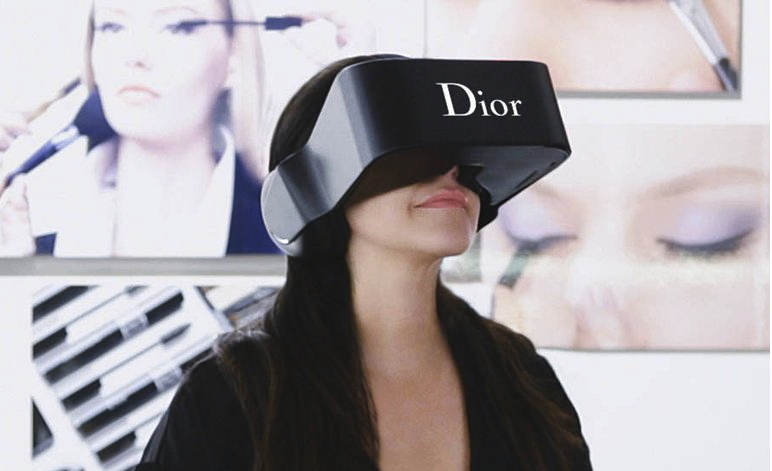Executive of luxury brands, such as Michael Kors or LVMH have been gathered to discuss about new technologies and opportunities for their sector. Below are six key questions that were asked and answered throughout the day.
1. How are Chinese brands and retailers bridging the gap between offline and online commerce?
In the words of Arthur Chang, UCO Cosmetic’s Co-Founder and Chairman, “e-commerce is dead.” Not because nobody buys online anymore, but the opposite. E-commerce is becoming so ingrained in the every day that it shouldn’t stand apart from any other way to shop. Furthermore, simply selling products online doesn’t work anymore as a business strategy. Luxury brands in particular need to utilize technologies and offer different experiences to customers so that they can stand out from the crowd of other online sellers.
2. Live streaming seems to be all the rage. Are there really luxury and prestige brand success stories?
The best place to start when speaking about live streaming, is by looking at live streaming’s core audience, which is largely made up of China’s always-connected millennials, of which there are over 300 million. Today’s Chinese millennials, like other millennials around the world, are looking for meaningful yet ephemeral experiences.
SEE ALSO: 5 China luxury market predictions for 2017
Some brands have really taken this understanding to heart. L’Oréal-owned beauty brand, Maybelline, decided to live stream the announcement that Angelababy was it’s newest ambassadress. With support from broadcasting platform Meipai, and with a direct link to its TMall store, Maybelline sold over 100,000 lipsticks in under two hours.
Though live streaming is still at its infancy in regards to adoption by luxury brands, the first case studies are showing significant opportunity.
3. Are augmented reality (AR) and virtual reality (VR) really relevant for a luxury audience?
In the luxury space, all kinds of examples are popping up. Dior and Tommy Hilfiger have been equipping their stores with VR headsets in order to transport shoppers to front row at the latest fashion show or event, Mei.com unveiled a VR experience in their last pop-up shop, and numerous other brands are taking their first steps into this new arena.

4. How can I use WeChat to develop a social CRM strategy and better deliver personalized content to my audience?
This was a question that John Hamilton, Four Seasons Hotels & Resorts’ Director of Marketing Communications for the APAC region, asked himself. There were a few key challenges that Four Seasons had to work through when getting started. Limited follower data was available on WeChat, activities had been limited to broadcasting messages without a lot of feedback from the audience, and it was hard to drive bookings from WeChat.
SEE ALSO: Dior to sell Lady Dior handbags on WeChat
With those challenges in mind, a CRM approach was built. First, advanced analytics were put in place to better understand follow behaviors and actions. Next, audience segmentation and targeted content was unveiled with a goal to personalize the message. And finally, the audience was given a call-to-action when appropriate, and their intent to book was better tracked.
One important insight in this case was that Four Seasons learned to not underestimate the power of small communities. By segmenting according to interests, they were able to push out customized messages and generate better results.
5. Do celebrity and key opinion leader (KOL) partnerships really work to drive sales?
Easy Entertainment is a leading celebrity agency in China that works with famous celebrities on their partnerships with luxury brands. One of the most recent success stories for Easy Entertainment has been the collaboration between Lu Han and Cartier, easily one of the most talked about personalities this year.
First, when a brand decides which celebrity to work with, one the key factors that must be taken into consideration is the celebrity’s social data. Also taken into consideration is whether the celebrity’s personal image and follower base pairs well with the brand’s targeted audiences.
SEE ALSO: KOLS: China’s top 5 fashion influencers of tomorrow
6. Which luxury watch brands are resonating most with Chinese digital natives?
Chinese digital natives (those born after 1990) represent the customer base of the future for expensive luxury brands in China. According to Baidu, the leading search engine of China, the luxury watch brands that are capturing the most interest from this important audience are as follows:
- Cartier
- Vacheron Constantin
- Piaget
- Patek Philippe
- Jaeger-LeCoultre
Cartier’s lead is heavily linked to their chosen spokesperson, Lu Han, mentioned above, the well known singer and actor that is loved among China’s millennials who Cartier China considers one of the most popular representations of China’s new generation. Cartier’s first position on this short list shows the power that KOL and celebrity partnerships can have on gaining awareness and interest
(Source: Luxury Society)




